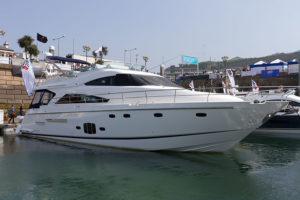Do you have an older boat that’s so loud that you have to yell at your guests so they can hear you? Maybe you bought a brand-new boat that sounds like a lawn mower. The most common source of noise is the boat engine. However, that’s just the first place you should check. And sure, you could pay an acoustics expert hundreds, if not thousands, of dollars to add all sorts of insulation so you can enjoy riding in peace and quiet. However, there are ways to do this yourself for cheaper too.
If you’re a DIY kind of person, we’re here to save you some money with some really affordable ways to quiet down your boat engine. So, if you’ve been asking yourself “How do I make a boat quieter?” we’re here to tell you exactly how. There’s nothing relaxing about a loud boat, so let’s get to it!
Hiring an Expert
An acoustics expert is the person you’d have to hire if you decided to pay someone to do the job of quieting down your boat engine. These experts come in and measure your boat before selling you insulation materials. You then have the option of doing the installation yourself or paying them to do it. This won’t be cheap, even if you do the work yourself. Of course, this is the most fail-proof way to do it and there are no DIY tricks that will beat it.
The Boat Engine Room
 This is where most of the intrusive sounds come from in a boat. For less noise, simply seal all passages other than the vents. You certainly don’t want to block the necessary vents that supply your boat engine with air to prevent combustion. However, you should seal doors and openings in the bulkhead. You can use caulk or foam to do this, materials that are typically inexpensive. If you’re using foam, just glue it inside the boat engine cover. You can also use a laminate deadener inside the cowling, which is often the source of the noise.
This is where most of the intrusive sounds come from in a boat. For less noise, simply seal all passages other than the vents. You certainly don’t want to block the necessary vents that supply your boat engine with air to prevent combustion. However, you should seal doors and openings in the bulkhead. You can use caulk or foam to do this, materials that are typically inexpensive. If you’re using foam, just glue it inside the boat engine cover. You can also use a laminate deadener inside the cowling, which is often the source of the noise.
Pump Noise
Your pump needs to move and shake but it doesn’t need to rattle against other objects and make so much noise. Mount the pump on pieces of flexible hose or synthetic rubber. Then screw it to where it needs to be mounted. This should help reduce some noise. Look around and see what else in the boat rattles and shakes. See if you can similarly insulate the object with rubber or hose material to stop it from making as much noise.
The Boat Engine Box
 Use sound-reduction foam that is safe for gas engine compartments to line the inside of your engine box. Check your exhaust bellows if this doesn’t improve the sound quality. If the bellows are disconnected, connect them again. If you’re still hearing way too much noise, have your exhaust system checked out by a professional. Do not extend the exhaust however. Always allow it to remain above water, where it should be.
Use sound-reduction foam that is safe for gas engine compartments to line the inside of your engine box. Check your exhaust bellows if this doesn’t improve the sound quality. If the bellows are disconnected, connect them again. If you’re still hearing way too much noise, have your exhaust system checked out by a professional. Do not extend the exhaust however. Always allow it to remain above water, where it should be.
Check the RPM
Make sure you have the right prop on your boat. The excess noise could be that the boat engine is working at a higher RPM than it should. In general, if it’s revving at more than 4,800 RPM, your boat may need a prop with a higher pitch. On the other hand, relatively new boats tend to make a lot of noise. So, if you just bought yours and it’s loud, give it some time.
Boat Insurance
Hopefully, we’ve helped you quiet down your boat somewhat. Now make sure your boat is protected with the proper insurance. Don’t worry, RV Insurance doesn’t have to be expensive. It can actually be affordable and you’ll be sure that you have reliable coverage for your boat. Speak with an RV Insurance Specialist about your needs and get several free quotes at once by calling (866) 501-7335.
The information in this article was obtained from various sources. This content is offered for educational purposes only and does not represent contractual agreements, nor is it intended to replace manuals or instructions provided by the manufacturer or the advice of a qualified professional. The definitions, terms, and coverage in a given policy may be different than those suggested here. And such policy will be governed by the language contained therein. No warranty or appropriateness for a specific purpose is expressed or implied.
